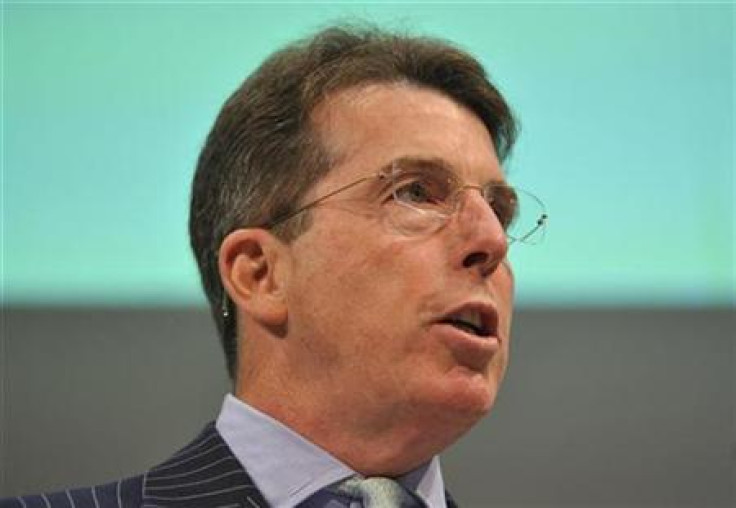Bob Diamond: Barclays Could Survive Another Banking Crisis

Barclays can withstand the failure of European banks, says its chief executive Bob Diamond.
"We can manage through that," he told John Humphrys on Radio 4's Today programme.
He said they have higher capital than before and less exposure to sovereign debt, which should see them through any crisis.
Recent "stress tests" showed British banks are fine, he added.
"Strong banks want strong regulation," according to Diamond.
When it comes to perception of stability in the banking industry, as well as how it conducts itself, he said "it's important to restore trust" promising that banks are "safer and sounder".
People no longer feel they can go and see their "friendly bank manager", said Humphrys and no one has faith in banks anymore.
"We can win that back," Diamond replied.
Banks should also be able to "fail in an orderly way".
Humphrys asked why, then, did they need safeguarding by the European Financial Stability Facility (EFSF), which promises to "finance recapitalisations of financial institutions through loans to governments"?
It was to calm markets, said Diamond, and to help interest rates on borrowing come down.
When pressed by Humphrys on the Bank of England's view that banks can't lose when they take big risks, as if they make losses then the taxpayer will inevitably prop them up, Diamond said he "agrees", adding "banks shouldn't be too big to fail".
Though describing investment banking as "gambling" is "unhelpful", he said.
On the level of remuneration in the financial sector, Diamond said a balance needs to be struck between responsibility and competitiveness.
British banks must remain competitive in a global market, he stressed.
On his own remuneration, Diamond was evasive. He told Humphrys that the "debate about pay packages is something we have to listen to".
Eventually he was drawn on his salary, which he revealed is just over £1,000,000, adding that any bonuses on top of that are up to the board.
"Are you worth it?" asked Humphrys.
The job comes with "tremendous responsibility" Diamond replied.
His interview follows his Today Programme Business Lecture on Nov. 3, where he said bankers could be "good citizens".
"The single most important thing for banks and for businesses now is to focus on helping to create jobs and economic growth; and being able to do that requires us - banks in particular - to rebuild the trust that has been decimated by events of the past three years," said Diamond in his lecture.
He also praised the government's spending cuts: "With such high debt levels, government deficits have to be reduced - they're simply too big to be managed by increasing taxes alone.
"The solution has to include a reduction in public spending.
"It's no surprise then that the UK government has started doing just that, in order to avoid higher costs of borrowing.
"As a result, the UK can still borrow at a rate of 2.5% while Italy, Spain Portugal and Ireland have to pay between 6% and 12%."
However having denounced the term "gambling" in his Radio 4 interview, Diamond had somewhat contradictorily said in his lecture: "I know it sounds controversial to suggest banks must take risk, in the wake of a near collapse of the financial system, but banks serve little economic or social purpose unless they do so.
"Every time a bank lends money on a mortgage they're taking risk: Liquidity risk - what if the depositor wants their money back before the borrower repays it? Credit risk - will the person be able to pay it back? Interest rate risk - what will happen to interest rates over the life of the mortgage? Market risk - will the property maintain its value?
"Every time a bank gives someone a credit card they're taking risk. Every time a bank lends to a small business that needs capital to grow, they're taking risk."
© Copyright IBTimes 2024. All rights reserved.







